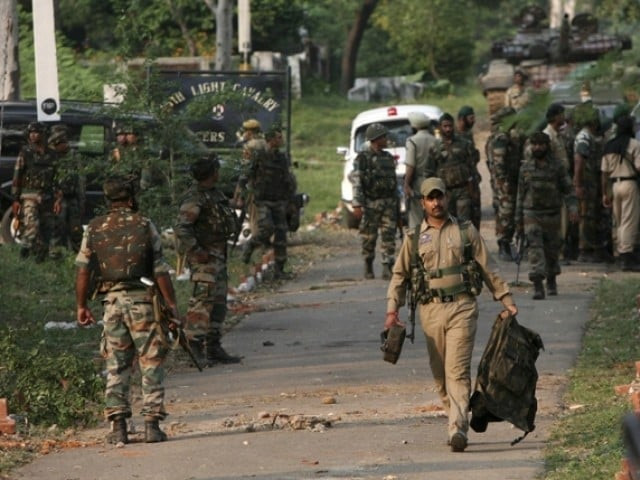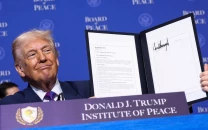Emergency law fuels army abuses in Indian Kashmir: Amnesty International
London-based group released report on 25th anniversary of the Armed Forces Special Powers Act in Indian Kashmir

File photo of the Indian army. PHOTO: REUTERS
Amnesty International said the national government had refused to prosecute any soldiers accused by local police of rights abuses in the region since the draconian law was introduced in 1990.
"This lack of accountability has in turn facilitated other serious abuses," said Minar Pimple, Amnesty's senior director of global operations.
The London-based group released a report on the 25th anniversary of the introduction of the Armed Forces Special Powers Act (AFSPA) in insurgency-hit Indian Kashmir.
Accountability still missing for human rights violations in Jammu & Kashmirhttps://t.co/MvDJAOkc5j #JusticeDenied pic.twitter.com/B7NSQHtaDS
— Amnesty India (@AIIndia) July 1, 2015
Read: Indian kashmir: AJK premier slams police atrocities
The emergency law gives thousands of soldiers and paramilitary forces sweeping powers to shoot on sight, detain suspects without trial and seize property.
Successive governments and the army have staunchly resisted calls for repeal of the law, arguing it is needed to quell insurgencies and track down militants.
But Amnesty and other groups have repeatedly said the law, also in force in India's restive and remote northeast, was breeding further violence and alienation.
The report includes interviews with families whose relatives have allegedly been killed, sexually assaulted or tortured by soldiers and is based in part on the examination of court, police and other official records.
"I have lost faith in police and the courts, but I have faith in Allah," said Munawara Sultana, 43, who has been fighting for justice since 1993 when her husband was killed during a search by paramilitaries in Srinagar.
Read: Funeral held for Pakistani prisoner killed in Indian Kashmir
Police were reluctant to file cases against soldiers accused of wrongdoing, and the army was unwilling to cooperate even if police did decide to investigate, the report said.
Since 1990 the government has not agreed to any of the 44 requests from local authorities to prosecute accused troops, a requirement under AFSPA, it said.
Although the army has declared "zero tolerance" for abuses, it has dismissed as "false or baseless" 96 per cent of the more than 1,500 complaints of military wrongdoing between 1993 and 2011, the report said.
Kashmir has been divided between India and Pakistan since 1947. Both countries claim the disputed territory in its entirety.
Since 1989 groups have been fighting India for independence or a merger of the Himalayan territory with Pakistan.
Tens of thousands of people, mostly civilians, have died, but violence has steadily declined since the countries signed a ceasefire agreement in 2003.



















COMMENTS
Comments are moderated and generally will be posted if they are on-topic and not abusive.
For more information, please see our Comments FAQ